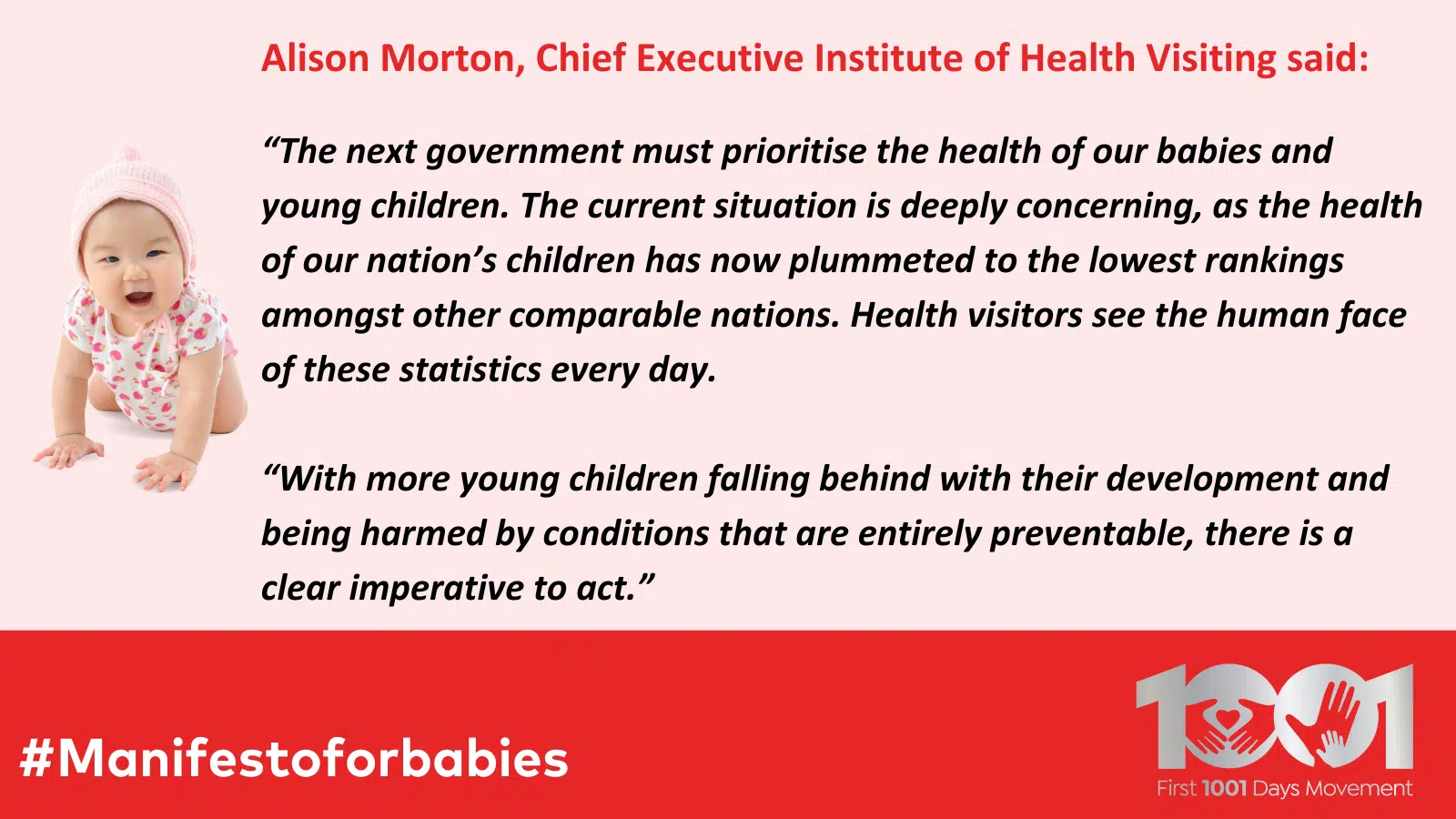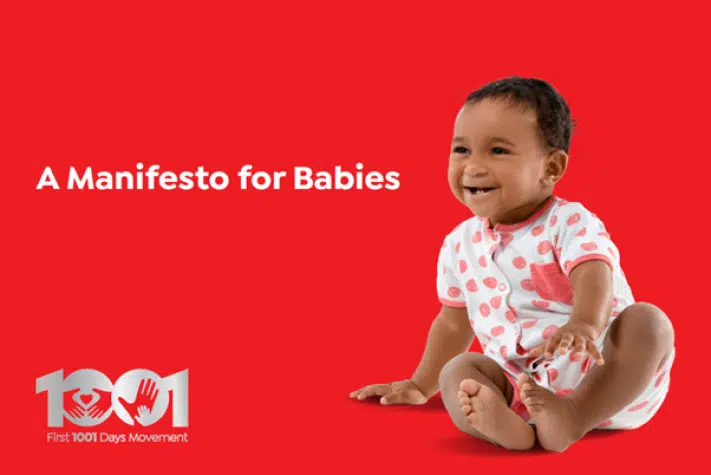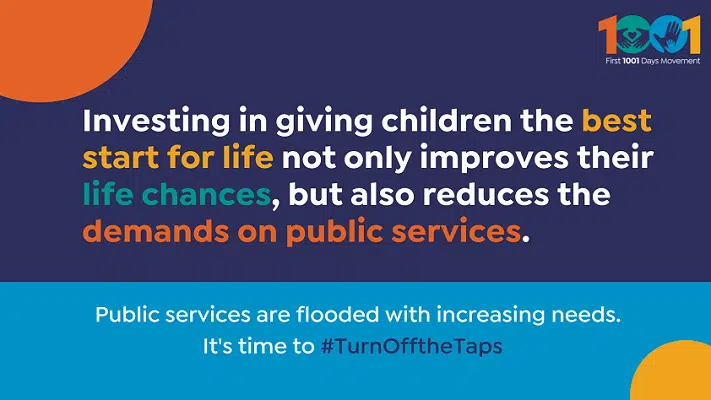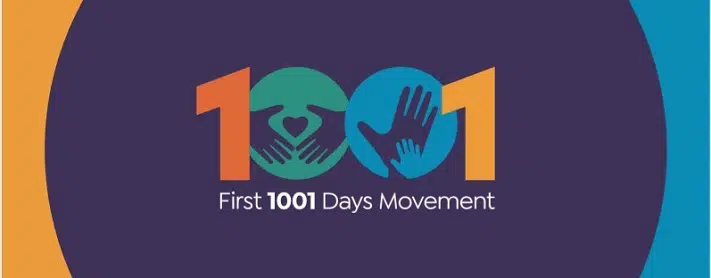The iHV is proud to be a Steering Group member of the First 1001 Days Movement and fully supports its Manifesto for Babies. The recommendations are published in advance of the general election to coincide with Infant Mental Health Awareness week this week (10-16 June 2024) and our shared pledge to #SpeakUpForBabies.
The First 1001 Days Movement comprises a coalition of over 200 charities and professionals who believe that babies’ emotional wellbeing and development matters. The Movement’s members deliver a wide range of services that protect and support babies and their families – and the recommendations for the next government are based on a survey of its membership.
At the iHV, we are delighted to have the weight of support of more than 200 organisations and individuals within the Manifesto calling for sustainable funding for health visiting. We know that it takes a village to raise a child and health visiting is only part of the solution. Collectively, we recognise the importance of a comprehensive system of support to meet the needs of all babies – with the following recommendations:
1.An ambitious cross-government strategy to support babies’ healthy development
- A Cabinet Committee made up of relevant Secretaries of State, reporting to the Prime Minister, to join up government
- An ambitious cross-government strategy for babies that aligns government departments to work towards common outcomes.
2. Invest more in prevention
- Sustainable funding of preventative services, including health visiting, with public health budgets ring-fenced from day-to-day and capital spending
- The Treasury to recognise the full benefits of services that improve outcomes in both the short and long term and across departments
- Extending funding for the Start for Life programme until every neighbourhood has a Family Hub or Children’s Centre
- The NHS Long Term Plan to include preventative mental health services for babies.
3. Tackle health inequalities so that all babies have a good start to life
- A national strategy to support babies in the first 1001 days should include targeted approaches to reduce inequalities
- The next government to commit to tackle child poverty and scrap the two-child limit policy
- Integrated Care Systems to be held accountable for their statutory duty to reduce health inequalities and invest in services that support babies’ social and emotional development
- Services to be co-produced with families to reach the most vulnerable babies in marginalised and isolated families.
4. Develop a workforce plan for children’s social care and the early years
- Adequate staffing levels to support babies and provide safe care in all settings
- Collaborating with professional bodies to accurately estimate and address workforce gaps across services
- A workforce plan for social care and the early years workforce to complement the NHS Workforce Plan
- A review of training pathways to explore new entry routes to careers in the NHS, early years, social care and the voluntary sector.
5. A rapid review of the tax and benefits system for parents and carers of under-2s
- Government to recognise that supporting babies’ healthy development is equally important a policy objective as getting new parents back to work
- Parental choice to return to work to be supported
- Government to provide six weeks’ well-paid paternity and parental leave to help fathers play a more active role
- Training in infant mental health for nursery staff and all those working in paid settings caring for under-2s.
Read the full First 1001 Days Manifesto report here.
Get involved – ask your candidates to support the campaign – see details here.
In case you missed it, you can also read the iHV manifesto “asks” for health visiting, published last week, here.







